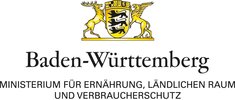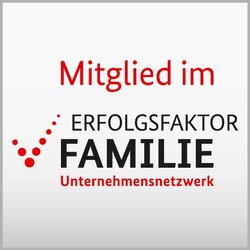
About us

Observe. Research. Advise.
"We collate, confirm and communicate information on the forest for you."
As a state research institution, the FVA is responsible for forests and forestry in Baden-Württemberg. It performs tasks that are important for the whole of society. Research, monitoring, training and the advising of policy-makers, administrators and businesses are at the core of our work.

Our key competencies
With continuous scientific monitoring, the FVA aims to identify long-term changes in the ecological, economic and social context of forests. This ongoing scientific task is supported by research in the areas of measurement methodology and analytical competence.
In its research and development approaches for practitioners, the FVA always keeps the different forest functions and the interests of the various different stakeholders in the forest and forestry and timber industries in mind. Good interdisciplinary cooperation, international networking and an impartial approach to research questions are the hallmarks of a nationally and internationally recognised high scientific level, and make the FVA a valued contact and research partner.
Knowledge transfer is about putting the findings of research into practice. It is of central importance in making the knowledge that is available usable for society, the economy, science and politics. Depending on the target group and the topic to be communicated, different media is used, including print media, electronic media, or further training carried out by staff on-site.
The FVA is for example involved in the information and communication platform waldwissen.net. The FVA’s research results are made available on the platform in a condensed and edited form, and contacts to experts are offered.
Our mission statement
- Our work contributes to the sustainable safeguarding of the social, ecological and economic values of forests - for us and for future generations.
- We provide scientifically sound information on the forest and its products and services.
- We impart knowledge and skills, making them accessible and applicable, and delivering them with enthusiasm.
- We provide impartial advice and moderation in operational and social processes.
- We handle enquiries in a friendly, competent and reliable manner.
- We learn new information for our work through dialogue with practitioners. Close to the experiences of forest owners...
- Through national and international cooperation and participation in scientific discourse, we work today on what will be important tomorrow.
Our mission
The tasks of the FVA are defined in §76 LWaldG (State Forest Act) for Baden-Württemberg.
Further tasks arise from other legal regulations. The FVA is assigned tasks under the Hunting and Wildlife Management Act and the State Nature Conservation Act, for example, as well as having a role in advising the supreme hunting authority.
The statute of the FVA (pdf in German) also gives the FVA an organisational role.
Ensuring good scientific practice
Science depends on scientific research being carried out free of precept and under the personal responsibility of the researchers. An essential characteristic of scientific work is the “radical freedom to question everything that is claimed” and thus to find something fundamentally new as well as to substantiate this in constant discussion with other scientists. Observing these ideal conditions requires a high degree of responsibility and the capacity for self-criticism in all involved.
The conditions necessary for good scientific practice:
- The freedom to question must be constantly defended and defined and set against the also justified administrative or managerial requirements of the project, department or administration.
- External influences from initiators or “clients” must then be checked to see to what extent they limit the openness of the outcomes of the research work.
- The intellectual property rights of those who have created new methodological developments must always be protected as absolute high-ranking assets.
A special feature of the research work at the FVA is the close interdisciplinary cooperation between different subject areas on large-scale projects. For this, the subject orientation of the comparatively small sub-working groups must be determined. The efficient exchange of information and data between the sub-working groups must be organised, as well as their active participation in the joint development of the specific methodology, especially on interdisciplinary and synoptic evaluation approaches. A project strategy must also be devised. For these tasks, the formation of project advisory boards with a clear mandate and organisational remit is essential.
Challenges for public research institutions
As a research facility conducting research into forestry practice, the FVA has a specific mediating function between universities, state forest enterprises, commercial enterprises and forest administrations. In this arena of potentially conflicting interests, demands and expectations may arise that lead to scientific misconduct, for example when scientific/methodological certainty is sidelined in the desire to fulfil the expectations of a superior authority.
Due to its position in the transfer area between practice and research, the FVA is often called upon for its assessment as an independent body of experts. Particular care must be taken here to ensure independence and impartiality.
Due to the high proportion of long-term monitoring tasks carried out by the FVA, there is a special obligation for long-term data storage and documentation. It is therefore essential to document not only the results themselves, but also the metadata (method descriptions and calculation steps linked to the data).
Introduction & implementation
The recommendations for ensuring good scientific practice at the FVA and example catalogues of possible sanctions or consequences in the event of scientific misconduct were introduced as a binding basis for scientific work at the FVA in December 2009. They were adapted from the recommendations of the German Research Foundation (DFG) on the same subject, and take account of the specific concerns and challenges of state research institutions. Dr. Gerald Kändler has been appointed as a so-called ombudsman to advise on and clarify problem cases.
Freiburg model
The FVA collaborates closely with the Faculty of Environment and Natural Resources of the University of Freiburg within the framework of the so-called “Freiburg Model”: This cooperation includes joint national and international events, joint research projects, joint publications such as the Freiburg Forestry Research publication series, close personal exchange and the exchange of data, as well as joint workshops. The two institutions complement each other in that the university essentially conducts fundamental research and teaches, while the FVA is responsible for publicly funded practice-oriented research for the state forestry company ForstBW.
Many projects are carried out in close cooperation with forest research institutes and university institutes in Germany or neighbouring countries. FVA employees are also represented in numerous national and international advisory and decision-making bodies.
Family-friendly FVA
Family-friendliness has been a hallmark of the FVA for years. The reconciliation of work and family life is an integral part of our mission statement and is implemented in the organisation of our work and our working culture. The measures we offer to promote the reconciliation of work and family life are manifold:
- Part-time employment, flexible working hours and the possibility of working from home are things that go without saying for us, and they are taken into account in our meeting and communication culture.
- We actively support employees with families with childcare: In 2013, the FVA opened its own day care centre for children, with a particular focus on forests, nature and sustainability. The Wonnhalde day care centre offers children aged 0 to 6 years old the opportunity to develop individually, to interact with their peers, and at the same time to develop a strong connection with the natural environment. We also offer holiday childcare for families with school children in cooperation with the WaldHaus Freiburg, a centre for environmental education.
- Specially trained care guides provide advice on all aspects of social care to our employees with relatives requiring care and support.
- Our corporate health management concept offers support helping our staff to maintain and strengthen their physical and mental health.
The FVA has been active in the Freiburg “familyNET” network of family-friendly companies for years, and is a member of the “Success Factor Family” network. In 2020, we as an organisation were again awarded the title of “family-conscious company” for our long-standing family-friendly personnel policy.

